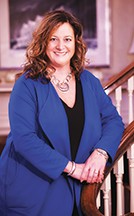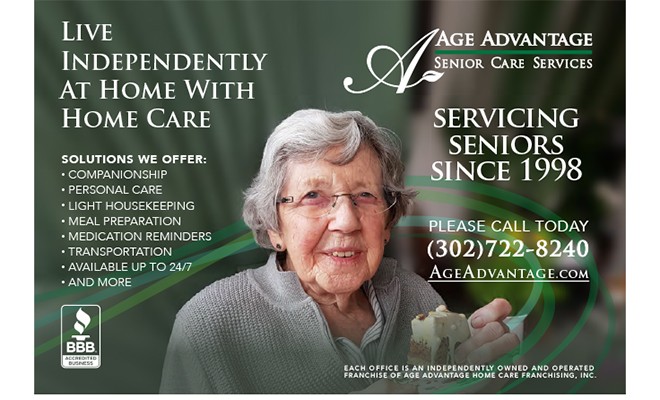For Seniors, A Fall Changes Everything
 By Kristin Stetler Donovan, Owner, Age Advantage of Newark
By Kristin Stetler Donovan, Owner, Age Advantage of Newark
Depending on who you are, the upcoming winter season has a different meaning for you. For school-aged children, it’s the prospect of snow days, and the excitement of upcoming holidays. To many adults, it could be preparing for time with family, travel, kids home from school, or all of the above. For seniors, cold temperatures and winter can mean something completely different. Some seniors fear that they may not have enough food in the house and even a light snowfall or a glaze of ice means they don’t know when it will be safe to venture out.
I remember my mother being glued to the TV for the latest weather forecast and stressed over being “trapped.” She explained to me that the cold weather made her joints ache and she worried about leaving the house with any type of snow or ice for fear that she might slip and fall. At the time, it made no sense to me. Having spent the last 6 years caring for many seniors who have experienced a slip and fall due to weather conditions, it has become apparent how real those fears were.
In some cases, a fall makes it impossible for seniors to stay at home independently. They may need to get outside assistance into their home or be forced to leave their home and enter a senior community in order to have the additional support they need going forward. When I meet with clients, I often try to explain that falls are a game-changer. We all know that, as we age, our bone density changes, bones become more brittle and the risks of fractures and breaks increase. All too often seniors suffer from broken bones that could have been avoided if they were more aware of the risks associated with venturing out in bad weather and if they were given precautions they can take in advance.
According to the National Council on Aging (NCOA), falls are the leading cause of fatal and non-fatal injuries for older Americans. Falls threaten seniors’ safety and independence, and generate enormous economic and personal costs. Falls, with or without injury, have a huge impact on quality of life. A growing number of older adults fear falling and, as a result, may limit their activities and social engagements, especially in the winter months when many people are already at risk of seasonal-based depression. This can result in further physical and emotional decline from social isolation, feelings of helplessness, and loss if independence.
According to the U.S. Centers for Disease Control and Prevention:
- Every 11 seconds, an older adult is treated in the emergency room for a fall (resulting in nearly 3 million emergency room-treated injuries per year)
- Falls are the leading cause of fatal injury and the most common cause of nonfatal trauma-related hospital admissions among older adults.
However, falling is not an inevitable result of aging. Sometimes, the best medicine is prevention. Through practical lifestyle adjustments, evidence-based fall prevention programs, and clinical-community partnerships, the number of falls among seniors can be substantially reduced. The NCOA leads the National Falls Prevention Resource Center, which supports awareness and educational efforts about falls and promotes evidence-based fall prevention programs and strategies across the nation. Locally, there are resources available through the Delaware Coalition for Injury Prevention, including “A Matter of Balance” classes.
Although many initiatives exist to minimize the risk of falls, it is unfortunate, but falls cannot always be prevented. If you or someone you know have been affected by a fall and are having difficulty maintaining your independence, please call 302-722-8240 and the staff of Age Advantage will be happy to assist you—whether temporarily during rehabilitation or on a more long-term basis to help maintain your independence. You can also visit our website at www.ageadvantage.com.
Testimonial
“Thank you so much for the extraordinary service and level of professionalism. If you ever need a reference, I am happy to provide.” ~ Ann M.


